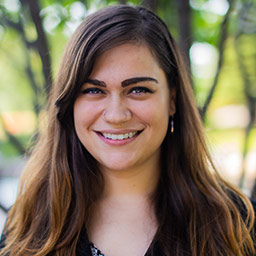
Growing up, you maybe didn’t know exactly what your dream job was, but you knew it involved working with children. Perhaps you wanted to be a teacher, be a school counselor or even open up your own childcare center—but so far you haven’t committed to any of these options. But now that you’ve moved on from daydreaming about your potential career options to actually searching and making real decisions, you’re coming back to the idea of working with children.
Having a positive impact on the lives of children is obviously appealing, but there are multiple academic routes you can take to find work in one of these influential positions. One route you may find interesting is pursuing an Early Childhood Education (ECE) major or program, which focuses on preparing you to work with our youngest learners.
As with any major or academic program, you want to do your research on the courses you’ll take, what skills you’ll need to succeed in the field and what your career outlook may be after graduation.
That’s where we’re here to help. We’ve done the heavy lifting and found the information you need to help you decide whether you should pursue an Early Childhood Education major.
5 Factors to consider before becoming an ECE major
Before you make your decision on whether or not majoring in ECE is the right choice for you, take a look at some of the information we compiled:
1. What you’ll learn in Early Childhood Education courses
Maybe you were the go-to babysitter on the block growing up, but spending a few hours at a time watching the neighbor’s kids–while a helpful experience–doesn’t hold a candle to what you’ll cover in an ECE program. You’re not signing up for classes on how to change diapers or when to give out popsicles—ECE programs are academically rigorous and cover a wide variety of important topics for educators.
The Rasmussen College Early Childhood Education program covers topics such as the foundations of child development, nutrition, safety, curriculum design and family dynamics, to name a few. These subjects are the building blocks for a career in the field—whether you plan to work as a preschool teacher, special needs instructor or run the show as a childcare center director.
2. Early childhood education career outlook
Money isn’t everything for educators, but it is still important to have a clear idea of what your job prospects may be. Once you have a college degree, you may be qualified to work as a preschool teacher, and later, a preschool or childcare center director. According to the Bureau of Labor Statistics, the projected employment growth for these positions remains relatively strong, according to the BLS—with preschool teacher employment projected to grow 10 percent and employment of center directors projected to grow 11 percent.1 This projection could also see a substantial boost in the future—several states are considering proposals to expand access to early childhood education or even provide universal Pre-K services.
3. What it’s like working as an ECE professional
Working with kids every day sounds like a blast, right? While there’s definitely a lot of fun and enjoyable moments to be had, there’s a lot more to it that you’ll need to consider. Early childhood education professionals will need to manage sometimes-lofty parent expectations, keep their classrooms orderly while working with potentially unruly children and plan engaging educational activities—not to mention knowing what to do when one of their pupils decides it’s time for a good old-fashioned toddler meltdown.
Needless to say, the everyday nurturing and positive attitude you associate with early childhood educators doesn’t always come easy. You’ll need to be mentally strong and dedicated to the field to make a career of it. This isn’t meant to scare you away—it’s just important to have a clear understanding of what you can expect.
4. The skills you’ll need as an ECE professional
Anyone working with young children needs to be patient while also knowing how to have fun. But what other skills do early childhood educators need? To help answer that, we used job-posting analysis software to examine over 25,000 job postings requiring a degree in early childhood education and teaching.2
The top-five “soft” skills needed for early childhood education professionals include communication, organizational ability, collaboration, planning and creativity. You may find yourself thinking that you already possess these skills—if so, great! If there’s one or two you may be lacking in, don’t worry. You can develop these skills over time with experience.
But it’ll take more than those broad skills to succeed in this field. Some of the top specialized skills, abilities and areas of expertise we found in our analysis include teaching, child development, lesson planning, staff management and psychology—all of which can be developed through an ECE academic program.
5. The importance of early childhood education & how it motivates you
Now you know most of the details about being an ECE major and should have a good grasp of what your education will look like as well as what you can expect after college. There is one more thing you should consider, though: How do experts feel about the importance of early childhood education? You want to be sure you’ll be in a career that has a significant positive impact on others as it will keep you going even through the tough days.
The importance of early childhood education has been debated for years, but research has increasingly showed many benefits. They say children are like sponges, and it’s true— researchers have found that from birth to age five, children’s brains develop faster than at any other point in their life.3 This means that access to quality education early on can aid in this development.
Early childhood education can also help close the achievement gap. Preschool prepares children for kindergarten, and those who don’t have access to preschool miss a chance to build social and emotional skills, as well as learn numbers and letters. These are only a few examples, but the message is clear: Early childhood education is incredibly important—and this important work should fuel you.
Diana Lee Santamaria, author and pre-kindergarten teacher, says one of the most rewarding parts of working in ECE is seeing how your students grow throughout the year. “You will actually begin to see such a change in the students that it’s sometimes baffling you had a hand in their development.”
Should you be an ECE major?
Kayla O’Neill, author of Parenting Expert to Mom, says, “I can honestly say it has been one of the best decisions I have ever made.” She explains how you’ll have the flexibility to choose your work setting: from childcare and schools to home environments. She recommends an ECE major for anyone interested in helping others making a positive impact on children’s lives.
Does that sound like you? If so, pursuing an Early Childhood Education program may just be the right fit. Learn more about what Rasmussen College has to offer you by visiting the Early Childhood Education degree page.
Related Articles:
- 8 Signs You Are Perfect for a Career in Special Education
- 35 Telltale Signs You Teach Preschool
- 6 Things You Didn't Know About the Rasmussen University School of Education
1Bureau of Labor Statistics, U.S. Department of Labor, Occupational Outlook Handbook, [information accessed August 8, 2018] www.bls.gov/ooh/. Employment conditions in your area may vary.
2Burning-Glass.com (analysis of 25,262 Early Childhood Education and Teaching job postings, Aug. 01, 2017 – Jul. 30, 2018)
3IOM (Institute of Medicine) and NRC (National Research Council). 2012. “From Neurons to Neighborhoods: An Update: Workshop Summary.” Washington, DC: The National Academies Press.




